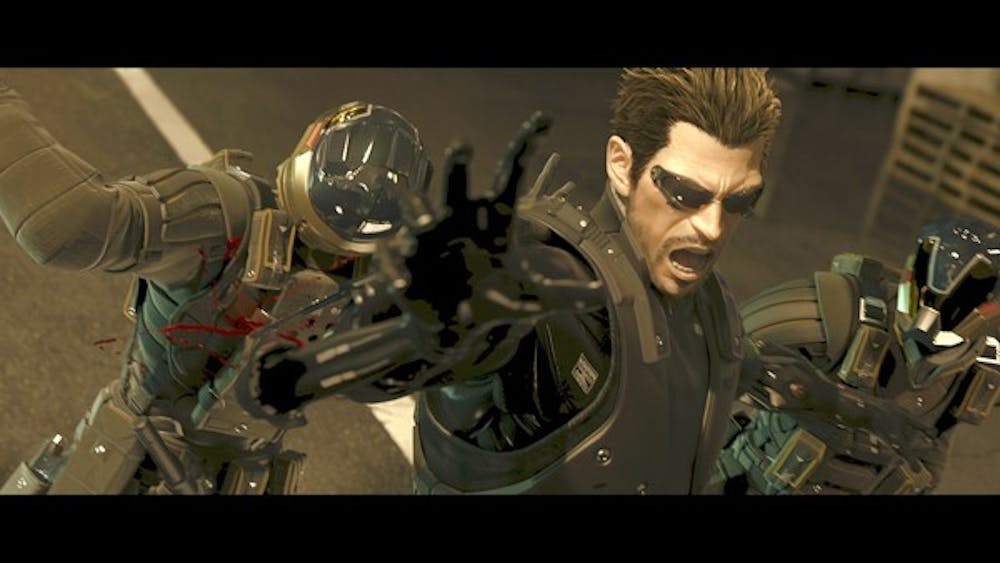“Deus Ex: Human Revolution”
PC, PS3, Xbox 360
4/5 Pitchforks
Released: August 23
The words “Deus Ex” mean something to the older generation of gamers. Released in 2000, the original “Deus Ex” game hit stores to almost universal praise. Upon release, it won multiple Game of the Year awards and continues to be placed on lists of one of the best games ever made. With the bar set so high by its predecessor, making another installment to the series seemed like a daunting task. However, the developers at Eidos Interactive not only rose to the challenge, but surpassed expectations.
“Deus Ex: Human Revolution” is a prequel to the original game, but knowledge of the original storyline isn’t necessary to understand what’s happening. “Human Revolution” is set in Detroit in the year 2027. You are Adam Jensen, a security officer for a corporation called Sarif Industries. Sarif Industries is a research and development company that focuses on human enhancement through futuristic technology.
In the opening moments of the game, Jensen is mortally wounded during an attack on the company. In order to save his life, Sarif Industries replaced most of his body with machinery. Once Jensen is put back together, he sets out to understand the reason behind the attacks and who was truly behind it.
The game’s plot is both its greatest strength and weakness. On one hand, it is an incredibly deep narrative and watching Jensen unravel the truth behind the attack is an engrossing experience. There is also a large emphasis on player choice and actions. If you fail to act fast enough or kill a character, that action will affect the outcome of the game. Very few games place such an emphasis on actions and choices matter like “Human Revolution.” You are not simply playing a game, but actively changing the way events unfold.
While the complexity of the plot is intriguing, it also poses a few of its own problems. The game references events and uses terminology that happened in the history of the game’s world without first setting a premise. It expects you to keep up with it and understand the world without much explanation. Characters seemingly mentioned in passing at the beginning of the game wind up becoming very important. Unless you are paying close attention to everything being said and read every scrap of information you find, important pieces of information can be missed.
At first glace the gameplay seems to be a more traditional shooter game like “Halo” or “Call of Duty,” but the game’s RPG elements set “Deus Ex: Human Revolution” apart. The game combines solid first- and third-person shooter mechanics and adds a heavily customizable leveling up system. As the game progresses, Jensen is able to augment his prosthetic limbs. Even the weapons in the game are upgradable to do more damage or add different properties like a laser sight or silencer. By the end of the game, Jensen is capable of running farther, jumping higher, or even turning invisible.
Staying true to the game’s ability to let the player choose, the way Jensen progresses is up to you. If you want to make Jensen a stealth-based character, you can upgrade his cloak and computer hacking abilities. If you prefer the more gung-ho approach, upgrade his armor and accuracy. The choice is yours.
Reinventing a beloved franchise is no easy task but “Deus Ex: Human Revolution” is a more then deserving entry and will hopefully revive the franchise. “Human Revolution” is a brilliant game with an incredible amount of attention to detail. The game’s complexity keeps it from being as accessible as more popular titles like “Call of Duty,” but it is the perfect game for someone looking for something more than just another run-of-the-mill military shooter game.
Reach the reporter at tkuipers@asu.edu





